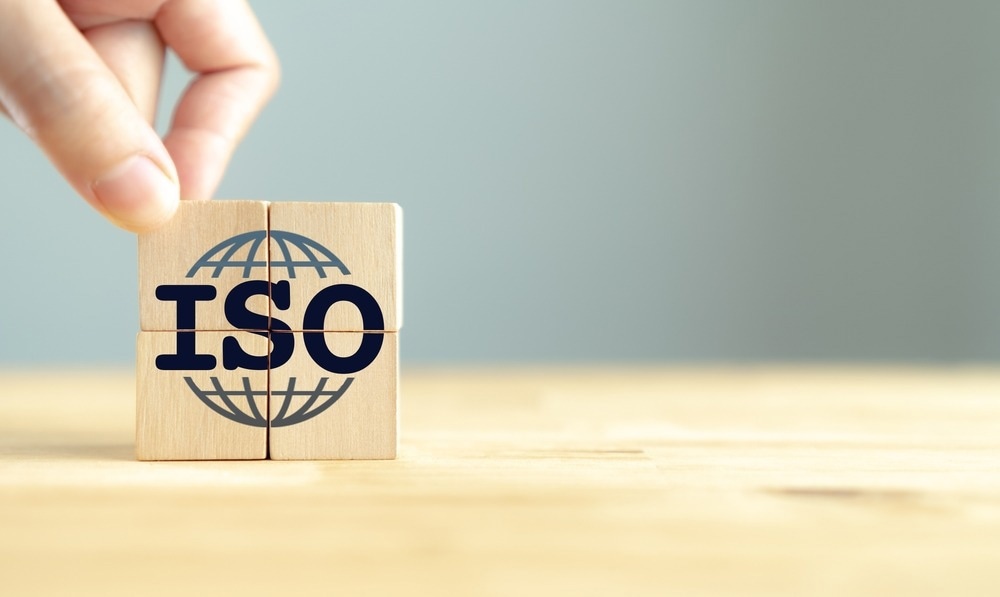ISO stands for the International Standards Organisation, an independent body that encompasses a vast network of experts from different disciplines. Together, these experts pool their knowledge and experience to establish best practices and define key safety protocols for processes in a range of fields.

Image Credit: 3rdtimeluckystudio/Shutterstock.com
Across the world, ISO standards are recognized as the best practice way of doing something. People from all industries follow the guidelines set by ISO, with the result of a safer and more consistent end result. Therefore, ISO standards benefit organizations and consumers or end users.
How Do ISO Standards Impact the Field of Nanotechnology?
Nanotechnology standards have greatly impacted and benefited the advancement and worldwide adoption of nanotechnology applications and nanomaterials.
The first horizontal ISO committee established to proactively develop standards for the emerging field of nanotechnology is known as Nanotechnologies. The committee has focused on establishing broad and foundational standards on the terminology used in the sector, as well as metrology, health and safety, material and performance specifications. One success in particular that has emerged from the committee is the definitions of “nanoscale” and “nanomaterial,” which have been widely adopted across the board.
Additionally, the committee has set guidelines for standard measurement techniques for specific nanomaterials. These guidelines play a vital role in scaling up manufacturing processes to ensure consistency in characteristic profiles.
Finally, the committee has given prompt attention to the safety implications of these novel materials, and has established standards for their safe handling to avoid posing workers and the general population with unnecessary health risks. These standards have been adopted globally, and have helped nanotechnology transition into the mainstream.
What Are the Sustainable Development Goals and Why Were They Created?
The United Nations adopted the Sustainable Development Goals (SGDs) in 2015 in a bid to end poverty, protect the planet, and ensure peace and prosperity for all those on the planet by 2030. The goals are part of an ambitious 15-year plan that seeks to tackle some of the greatest challenges the world currently faces; they encompass 17 distinct goals, including no poverty; zero hunger; good health and well-being; quality education; gender equality; clean water and sanitation; affordable and clean energy; decent work and economic growth; industry, innovation & infrastructure; reduced inequalities; sustainable cities and communities; responsible consumption & production; climate action; life below water; life on land; peace, justice and strong institutions; and partnerships for the goals.
ISO believes that by encouraging the uptake of ISO standards, they are helping ISO members to meet the UN SDGs. ISO standards directly address economic, environmental, and social issues. Companies wanting to contribute to the UN SDGs are able to use the ISO standards as a tool to help them address important issues.
How Could Sustainable Development Goals Benefit From ISO Standards?
The SGDs rely on contributions from all corners of society to find success. In total, ISO has published more than 22,000 international standards that represent frameworks based on international collaboration. These standards provide essential guidelines that allow innovation to thrive and international sectors to contribute to the achievement of each of the SDGs.
The ISO has identified standards that apply to each SDG. Organizations can use these standards to guide their organization in a way that contributes to the success of each goal. Because ISO standards apply to almost every field, it is easy to use the standards to establish protocols that are in line with the SDGs.
What SDGs Would Especially Benefit From ISO Standards?
Several SDGs, in particular, stand to benefit from ISO standards. SDG 9: Industry, Innovation and Infrastructure, potentially stands to benefit most. For example, ISO standards support business practices and relationships, such as ISO 440001: Collaborative business relationship management systems, which provide a framework that maximizes collaborative working and facilitates the formation of healthy business relationships.
Additionally, there are thousands of ISO standards that provide guidelines that seek to establish safe and effective construction. The ISO also has standards that encourage investment and supports innovation. Standards also exist which provide frameworks to help businesses achieve their potential (e.g, ISO 56002 and ISO 56003).
SDG3: Good Health and Well-being, also stands to greatly benefit from ISO standards. There are many ISO standards that apply to supporting safe and high-quality medical practices, such as the ISO 11137 series, which provides guidelines for sterilization of healthcare products and ISO 7153 which applies to materials for surgical instruments.
There are also numerous ISO standards that apply to SDG 12: Responsible Consumption and Production. These standards provide guidelines that encourage companies to reduce their environmental impact and promote the use of renewable energy. ISO 20400, for example, provides guidelines that help companies incorporate sustainable practices into their procurement procedures, and the ISO 14020 series that relates to standards for environmental labeling. These standards guide principles that help businesses operate in a more sustainable manner.
There are ISO standards that relate to each of the UN’s SDGs. Companies can use these standards to guide them into practices that are not only safe and high quality but are also in line with the SDGs.
References and Further Reading
Goal 9: Industry, Innovation and Infrastructure [online]. ISO. Available at: https://www.iso.org/sdg/SDG09.html
Goal 3: Good Health and Well-being [online]. ISO. Available at: https://www.iso.org/sdg/SDG03.html
Goal 12: Responsible Consumption and Production [online]. ISO. Available at: https://www.iso.org/sdg/SDG12.html
Sustainable Development Goals [online]. ISO. Available at: https://www.iso.org/sdgs.html
The SDGs in action [online]. United Nations. Available at: https://www.undp.org/sustainable-development-goals
With Standards, the Potential of Nanotechnology Keeps Growing [online]. ANSI. Available at: https://www.ansi.org/
Disclaimer: The views expressed here are those of the author expressed in their private capacity and do not necessarily represent the views of AZoM.com Limited T/A AZoNetwork the owner and operator of this website. This disclaimer forms part of the Terms and conditions of use of this website.